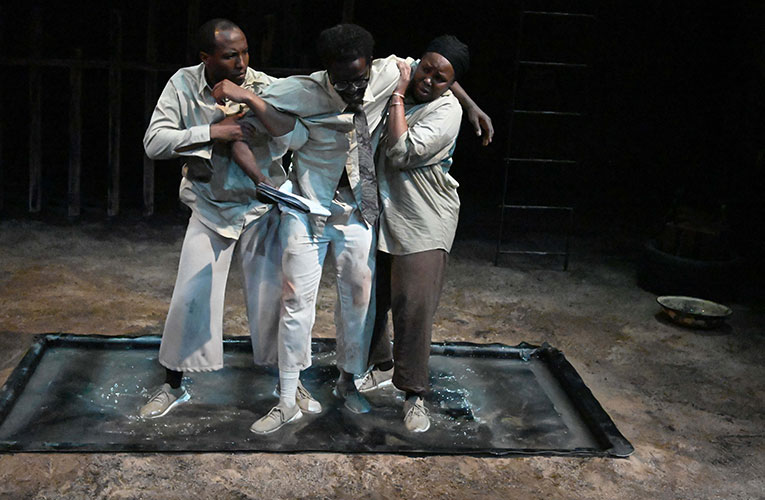Katanga, January 17, will leave you with a tear or two as it intellectually enriches you
By Edward Tsumele, CITYLIFE/ARTS Editor
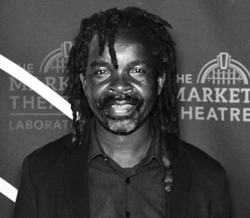
You know it very well that this is not going to be an easy ride when you are faced with a lone figure in a small pool that could be a swimming pool, and yet it is not. The lone figure is not swimming. He is not smiling too. He wears a serious face as he splashes water over his half-dressed torso. The scene gives you goose bumps, a sense that something terrible, ominous even, is about to take place.Indeed, the painful, awkward waiting moment is soon shattered by a guy who burst onto the scene, wielding and dangerously swinging the damn weapon.
What follows after this is a one and half hours of pain as we witness a brutal scene in front of us on the stages of the Mannie Manim Theatre at the Market Theatre on the opening day of Katanga January 17, this last Sunday. It is a production that depicts poignantly the brutality that befell DRC Congo in 1961, when its first Prime Minister of post-colonial DRC Congo the intellectual and Pan African Patrice Lumumba was mysteriously assassinated for no other reason that that he in a powerful speech asserted the country’s independence and commitment to restore the dignity and therefore humanity of his people, newly freed from the shackles of brutality by the Belgian King who treated the country as his personal property, harvesting its resources in a mindless and destructive fashion that left millions of its people dead, and those who survived to witness its freedom scarred and traumatised.
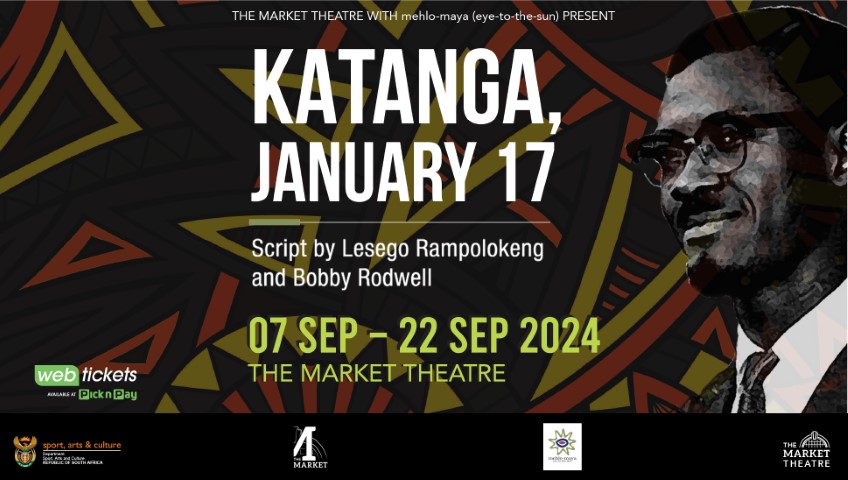
And therefore, when freedom dawned understandably hopes were raised as the traumatised and scarred and traumatised readied themselves for a painful and slow process of healing. At least so they thought.
Their leader however did not have that chance of leading his free people to that healing space. Lumumba was assassinated soon after in a cruel ad brutal fashion alongside his comrades who stood with him.
Captured, tortured physically and psychologically, and paradoxically not by the Belgians, but some of his own who acted on behalf of the former colonisers, the Belgians. Mocked by his tormentors and made to look and feel dehumanised and undignified, this scene is well captured on stage by an exceptionally well written text, good acting and good directing. The fact that everything happens around a small pool, that is not a swimming pool, shows a well thought out creative strategy by the set designer. This production is so good that you need not be from Congo or have witnessed that blot on the history of this highly complex country to feel the pain that came with that humiliation.
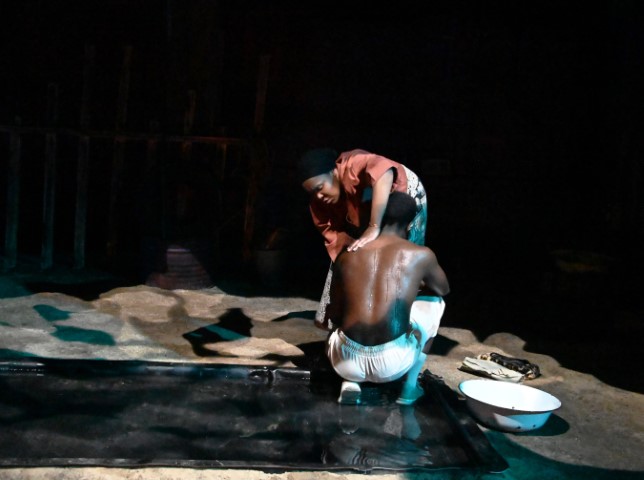
This is a story that is more than a story about one African country, but a story that in many ways represents the legacy of colonialism on the African continent, and how the so-called freedom that people attain after freeing themselves from colonialism is a story that is so common in post-colonial Africa that this production brings it close to home to any African living today.
This is indeed a powerful story that Bobby Rodwell as director and co-writer and celebrated wordsmith LesegoRampolokeng have weaved together, so nicely that those who will have an opportunity to watch it before it closes on September 22, 2024, would not need to read several books or watch several stage productions to understand what befell that country soon after it had its freedom in 1961, something that unfortunately has echoes in the violence that is currently wreaking havoc in that mineral rich country today.
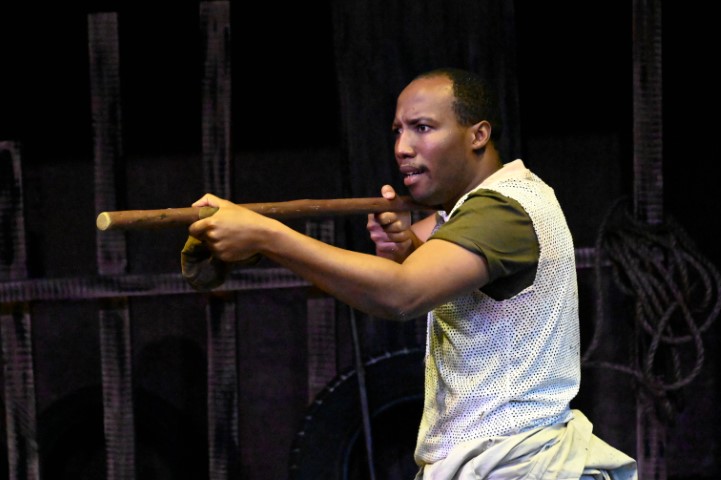
Something must be said about the text here. The text has footprints of Rampolokeng all over it, complete with his poetic register, giving the audience the opportunity not only to enjoy the acting, which on its own is very good, but to appreciate Raps’ (as Rampolokeng is fondly known in literary circles) literary genius as a poet. Here Rampolokeng enriches the script with captivating poetry, while Rodwell provides personal narratives of the people she’s interviewed. The third co-writer of the play is Lumumba himself, through his famous last letter to his wife, Pauline Lumumba.
However, at a broad level, Katanga, January 17, is aimed at strengthening African artistic collaboration, encouraging an exchange of stories and celebrating the African liberation heritage. Katanga was a secessionist province in the Republic of Congo in which the first prime minister of that country, Patrice Lumumba, and his associates were assassinated by a firing squad on 17 January 1961.
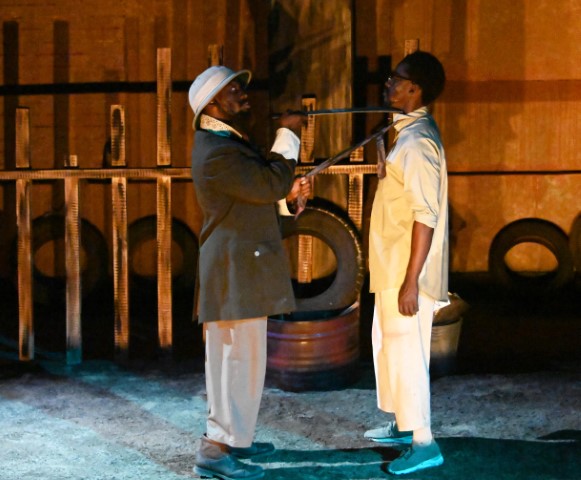
The show tackles important conversations about colonialism, African solidarity, instability, independence and decolonisation through the revered life of Lumumba, the slain Prime Minister. Blending poetry and prose, Katanga, January 17 presents a biography of Lumumba and how his legacy continues to impact present-day Democratic Republic of Congo (DRC). Furthermore, it explores events surrounding the assassinations of Lumumba and fellow comrades, Joseph Okito and Maurice Mpolo.
The story is aptly narrated through the eyes of a former child soldier, detailing the well-documented psychological, physical and social impact of war on child soldiers.
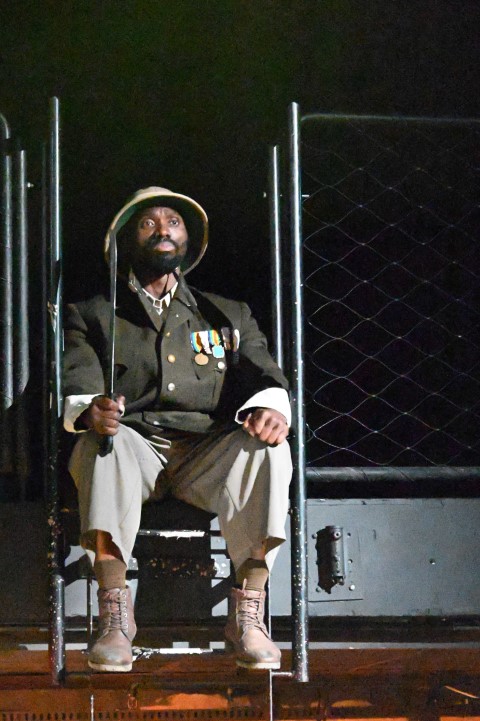
Here audiences are emotionally and intellectually transported to the eastern DRC – where ‘home becomes the mouth of a lion’ – and be exposed to the lived realities of the Congolese people, while touring the African liberation route. Additionally, the play triggers moments of deep reflection about the role of former colonial powers in the scramble for Africa’s resources, and the realisation of an African renaissance built on the strong pillars of good governance, democracy, unity, trade, economic transformation, and peace, among others.
The production is co-directed by Bobby Rodwell and Khutjo Green (who is also in the cast). According to Rodwell, Katanga, January 17 attempts to speak to the complex history and precariousness of life in the DRC as illustrated by the living descendants of Lumumba and Okito. “We are the children of war,” says Juliana Lumumba, daughter of Patrice Lumumba. “As my father ran in 1961, when his father, Joseph Okito was assassinated, so the children of the Congo are still running,” adds Joseph Okito’s grandson.
Katanga, January 17 is told in English, Ki-Swahili, Lingala and French. It features a proudly pan-African cast of South African and Congolese thespians. The South Africans in the cast are much-loved actors, Billy Langa and Khutjo Green. Billy recently featured in Poet-O-Type at the Market Theatre, while Khutjo Green was seen in Ka Lebitso La Moya at this year’s National Arts Festival.
Congolese actor Charly Azade, who performed in mehlo-maya’s Frontières, and Nji Alain, originally from the Camerron but now living in South Africa, complete the pan-African cast.
Co-writer, Rampolokeng, is widely published across genres with well received poetry collections such as Horns for Hondo (1990), Talking Rain (1993), The Bavino Sermons (1999), Head on Fire (2012) as well as A Half Century Thing (2015), among others. Lesego has also penned three novels – Blackheart (2004), Whiteheart (2005) and Bird-Monk Seding (2018) – and stage plays such as Bantu Ghost: A Stream of (Black) Unconsciousness and Fanon’s Children, in addition to contributing to many other plays.
Rodwell is the Founder and Director of pioneering theatre company, mehlo-maya (eye-to-the-sun) through which she has produced several acclaimed theatre pieces based on personal narratives. Her work includes The Story I Am About to Tell based on the Bishop Desmond Tutu-led Truth and Reconciliation Commission (TRC) hearings where victims and perpetrators shared personal stories of atrocities under Apartheid. Other works include flipping the script (2007) and Theatre on Trains (2011), which both focused on gender-based violence in the home, public spaces and on trains. In Frontières (2021), Rodwell shone a light on personal stories of migration with African migrants taking centre stage in a well-received production which took place at the Market Theatre.
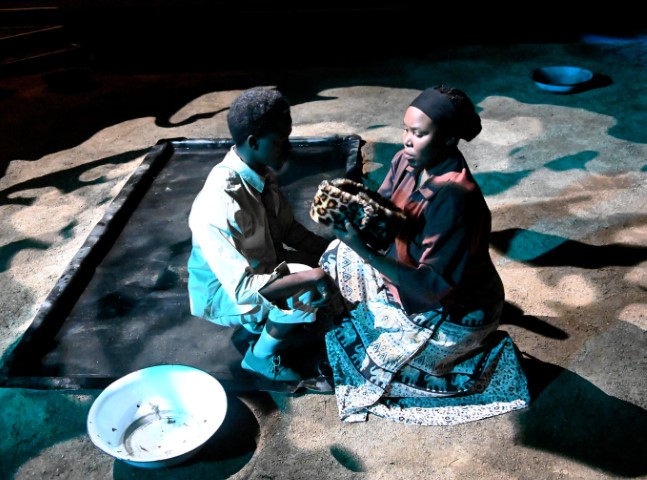
Don’t miss this dynamic cast as they weave together a narrative that, through movement and text, reveals a critical moment in the history of the Democratic Republic of Congo, and its significance to the African continent.
This is a play that may leave you with a tear or two, but intellectually enriched and more informed about not only what happened in 1961, but more importantly why the country that is so rich still finds itself in a sort of arrested development, long after the Belgians have packed their bags and gone back home.
.For reduced price block bookings (of 10 or more) and school groups, contact Anthony Ezeoke (Audience Development) at AnthonyE@markettheatre.co.za or 083 246 4950 or MamelloKhomongoe mamellok@markettheatre.co.za 0815729612










